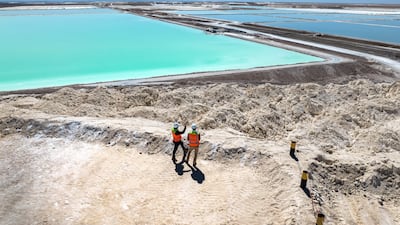The energy transition is arguably the most important economic and social project yet undertaken by humanity.
It is going electric to the nth degree and is, therefore, literally the process of switching the world's energy system and its role in the global economy from something that harms the planet to a new state of net zero.
This can't happen at the speed of flicking a switch, but the need is increasingly pressing. As we move towards Cop28 action is becoming more important than conversation.
Thirty years ago, few people had even heard of neodymium and dysprosium, two rare earth elements (REEs) that are used to create the permanent magnets that are the vital parts of wind turbine generators and electric vehicle batteries. Now they are referred to as the "critical minerals".
To switch away from fossil fuels, certain metals and minerals will need to be in abundant and timely supply.
These critical metals and minerals are what will enable the energy transition to happen, because they are used in the technology that will power the move away from fossil fuels.
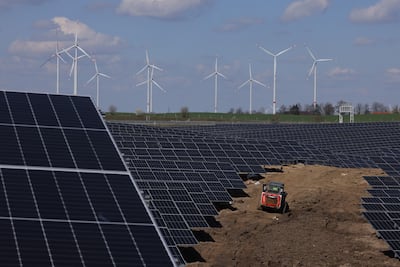
The International Energy Agency (IEA) predicts that over the next two decades clean tech will account for 40 per cent of the world's copper and rare earths demand, 70 per cent of the demand for nickel and cobalt, and almost 90 per cent of the demand for lithium.
"EVs and battery storage have already displaced consumer electronics to become the largest consumer of lithium and are set to take over from stainless steel as the largest end user of nickel by 2040," the IEA said in its report, The Role of Critical World Energy Outlook Special Report Minerals in Clean Energy Transitions.
"The rise of low-carbon power generation to meet climate goals also means a tripling of mineral demand from this sector by 2040."
There are many other critical metals and minerals as well, from platinum to lithium, from copper to graphite.
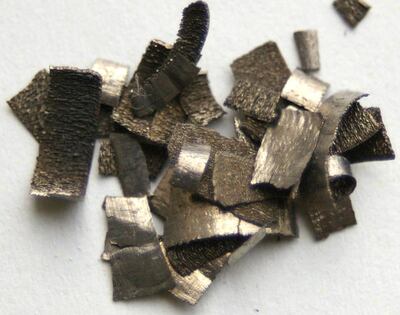
A report by the European Commission (EC) identifies 17 special metals used in various high-tech applications including smartphones, wind turbines, MRIs, hard disk drives, LEDs, electric motors and more. It said these "raw materials have been identified as a possible bottleneck to the realisation of the green transition, at least at EU level".
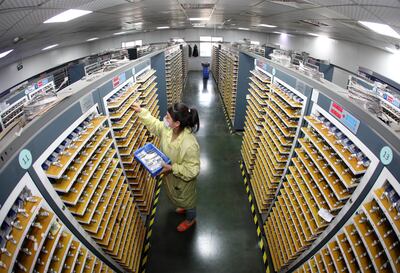
'A matter of concern'
Francesco La Camera, director general of the International Renewable Energy Agency (Irena) told The National that "critical minerals are a matter of concern; something that we have to take care of".
Most believe that there are enough critical minerals in the Earth's crust to enable net zero to achieved. But for Dr Fatih Birol, executive director at the IEA, the issue is not so much quantity as it is location.
"Today’s supply and investment plans for many critical minerals fall well short of what is needed to support an accelerated deployment of solar panels, wind turbines and electric vehicles."
For example, rare earths are a bit of a misnomer – they are not rare on Earth. Mr La Camera says that there are probably deposits of rare earths in the garden of his house in Sicily – the problem for supply chains is that rare earths are actually mined in few places and refined in fewer still.
A recent report from Irena said the "mining and processing landscape of critical materials is geographically concentrated, with a select group of countries playing a dominant role".
Those dominant roles are held by Australia (in the case of lithium), Chile (copper and lithium), China (graphite, rare earths), the Democratic Republic of Congo (cobalt), Indonesia (nickel) and South Africa (platinum, iridium).
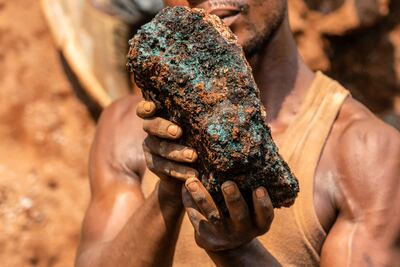
Dominant China
However, mining is only the first step. In order for critical metals and minerals to be viable in the battle for decarbonisation, they need to be refined, and there is one country that is way ahead of the rest of the world in this area, China.
China currently accounts for 100 per cent of the refined supply of natural graphite and dysprosium (a rare earth element), 70 per cent of cobalt, and almost 60 per cent of lithium and manganese, according to Irena.
The EC points out that "whilst the EU is a global manufacturing leader for products like automotive traction motors and wind turbines, it does not produce any rare earth elements itself. Of its total rare earth magnet demand, 98 per cent is met by Chinese imports".
"All of these speciality metals are in structural short supply relative to this exponential growth in demand, which is accelerating," Brian Menell, chairman and chief executive of Techmet, told The National.
"And all of them are controlled by China, who have seen this coming while everybody else was sleeping and over the last 15 or 20 years, has built an overwhelmingly dominant position across all of these global critical mineral supply chains."
Writing in Politico recently, Joris Teer, a strategic analyst at The Hague Centre for Strategic Studies and Chris Miller, an associate professor at Tufts University noted that China's dominance of several critical metal and mineral supply chains is a "powerful card" and "as mineral demand increases due to the energy transition, Beijing’s leverage is only growing".
Take for example, electric vehicles (EVs). Mr Teer and Mr Miller point out that China controls much of the value chain of electric vehicles, from the raw materials to the finished product; from "mining to refining, to processing, to battery-making, to manufacturing vehicles".
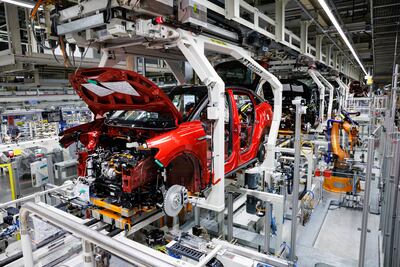
That creates a security concern, Mr Menell believes.
"“They will have a natural competitive advantage to supply electric vehicles into Europe, as opposed to batteries or lithium hydroxide," he told The National.
"The big European automakers could be very, very negatively affected, which could have massive inflationary and recessionary impacts on the German economy and hence the European economy.
"Globally, it creates a very unbalanced and uncomfortable geopolitical landscape, with respect to competition between the United States and China. So it has a lot of implications across many, many areas that we all have to think about very carefully.”
Analysts point out that even outside its own territory, China dominates.
For example, two thirds of the world’s cobalt, which is essential in manufacturing batteries, is mined in the Democratic Republic of Congo, but most of the mines are owned by Chinese corporate entities and refining, more often than not, occurs in China.
More mining
Reducing the risks to the supply chains of critical metals and minerals involved in the energy transition should now be an urgent priority for governments, many analysts say.
One obvious solution is to diversify the supply by opening more mines, where possible.
But there are constraints to that, not least the issuing of mining permits and ensuring that environmental and social standards are met.
"The world basically relied on Chinese output and countries did not bother developing their own potential supplies as it was cheaper to rely on Chinese exports," Stuart Cole, chief macro economist at Equiti Capital told The National.
"These local mines will now be developed to reduce dependence on China – and indeed on any single country – but again, it takes time and the final product is likely to be more expensive. Issues such as these will play a big part in determining production levels for final products, and by implication their price."
As such, there's a mismatch between the supply and demand of critical metals, Mr Menell said.
"It takes 12 to 15 years to build a mine and only two to three years to build a battery gigafactory. So, there’s a disconnect that is going to result over the next 20 years in a continual undersupply of these ingredients into the energy transition and new emergent industries," he told The National.

Use and use again
Recycling some of the critical metals and minerals would go some way to overcoming the bottlenecks in the system.
The IEA estimates that by 2040, recycled copper, lithium, nickel and cobalt from used batteries alone could meet about 10 per cent of the demand for these critical metals.
But the hope is that recycled critical metals and minerals will form an increasingly larger slice of the supply, as more of them enter the system, recycling technologies improve and the number of facilities grows.
However, recycling can go only so far in closing the gap between supply and soaring demand.
Mr Menell believes that the issues with the critical metal and mineral supply chain are finally being taken seriously by western governments. He believes that the West's attitude to trading with many of the countries, like the DRC, that are the sources of these critical minerals, needs a complete revamp.
“We need to engage with these countries much more effectively than we have chosen to do over the last 20 years when there’s been a massive withdrawal in engagement and the creation of a gap that China has largely filled," he told The National.
"And part of that is changing our attitude to help those emerging countries who have important resources – change their attitudes and create more of a partnership of respect and trust, which is often absent.”
An Opec for minerals?
Some experts, like Robin Mills, the chief executive of Qamar Energy and author of The Myth of the Oil Crisis, say part of the solution might be to create a critical minerals organisation along the the lines of Opec.
"Such a minerals organisation should focus on co-operation: building expertise and technology, developing domestic industries, and growing the size of its market, rather than trying to restrict it" he wrote in this newspaper.
"It should focus on the national interests of members, not on illusory geopolitical goals."
Most of the solutions to the bottlenecks in the supply of critical minerals require time, effort and funding.
As such, as world leaders prepare for the Cop28 summit, smoothing out the potential supply bumps in the road towards net zero should become an actionable priority.
